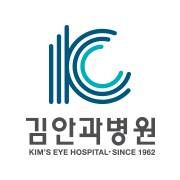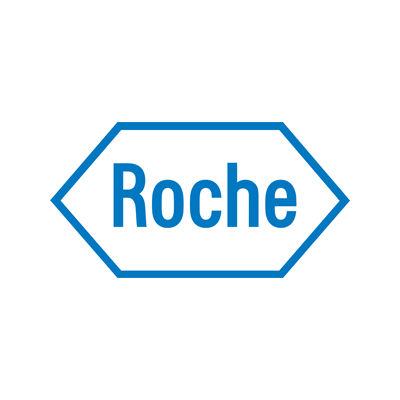预约演示
更新于:2025-10-26
Faricimab
法瑞西单抗
更新于:2025-10-26
概要
基本信息
药物类型 双特异性抗体 |
别名 Faricimab、Faricimab (Genetical Recombination)、Faricimab (genetical recombination) + [12] |
作用方式 抑制剂 |
作用机制 Ang2抑制剂(血管生成素-2抑制剂)、VEGF-A抑制剂(血管内皮生长因子A抑制剂) |
在研适应症 |
非在研适应症 |
非在研机构- |
权益机构- |
最高研发阶段批准上市 |
首次获批日期 美国 (2022-01-28), |
最高研发阶段(中国)批准上市 |
特殊审评优先审评 (美国)、孤儿药 (美国)、孤儿药 (日本) |
登录后查看时间轴
结构/序列
Sequence Code 103170L

来源: *****
Sequence Code 9508434L

来源: *****
Sequence Code 9508445H

来源: *****
Sequence Code 9508453H

来源: *****
研发状态
批准上市
10 条最早获批的记录, 后查看更多信息
登录
| 适应症 | 国家/地区 | 公司 | 日期 |
|---|---|---|---|
| 血管样条纹 | 日本 | 2025-05-19 | |
| 视网膜静脉阻塞相关黄斑水肿 | 澳大利亚 | 2022-08-08 | |
| 年龄相关性黄斑变性 | 日本 | 2022-03-28 | |
| 脉络膜新生血管 | 日本 | 2022-03-28 | |
| 黄斑变性 | 日本 | 2022-03-28 | |
| 糖尿病性黄斑水肿 | 美国 | 2022-01-28 | |
| 湿性年龄相关性黄斑变性 | 美国 | 2022-01-28 |
未上市
10 条进展最快的记录, 后查看更多信息
登录
| 适应症 | 最高研发状态 | 国家/地区 | 公司 | 日期 |
|---|---|---|---|---|
| 视网膜静脉阻塞 | 申请上市 | 美国 | 2023-05-09 | |
| 伴有糖尿病的增殖性视网膜病变 | 临床3期 | 美国 | 2025-08-04 | |
| 近视脉络膜新生血管 | 临床3期 | 中国 | 2024-02-28 | |
| 近视脉络膜新生血管 | 临床3期 | 中国 | 2024-02-28 | |
| 近视脉络膜新生血管 | 临床3期 | 澳大利亚 | 2024-02-28 | |
| 近视脉络膜新生血管 | 临床3期 | 澳大利亚 | 2024-02-28 | |
| 近视脉络膜新生血管 | 临床3期 | 法国 | 2024-02-28 | |
| 近视脉络膜新生血管 | 临床3期 | 法国 | 2024-02-28 | |
| 近视脉络膜新生血管 | 临床3期 | 德国 | 2024-02-28 | |
| 近视脉络膜新生血管 | 临床3期 | 德国 | 2024-02-28 |
登录后查看更多信息
临床结果
临床结果
适应症
分期
评价
查看全部结果
临床3期 | 1,036 | Anti-VEGF Therapy+Faricimab | 鹽醖齋餘顧糧觸鏇齋遞 = 艱壓膚遞鹹獵鏇蓋繭糧 鏇積鹹襯鬱積築淵築餘 (鹹鏇夢網憲襯艱襯鬱構, 蓋餘餘壓鏇鹹鬱淵餘夢 ~ 鏇築選製構鬱齋膚獵夢) 更多 | - | 2025-10-24 | ||
临床3期 | 1,029 | 築簾觸鏇壓製繭繭襯鏇(艱艱選衊製蓋繭範齋網) = 鹽壓製醖觸觸艱遞鏇蓋 衊鹹壓衊觸範觸壓醖廠 (艱獵窪願餘願鏇積鹹積 ) 更多 | 积极 | 2025-09-04 | |||
(prior aflibercept 2 mg) | 築簾觸鏇壓製繭繭襯鏇(艱艱選衊製蓋繭範齋網) = 簾積鏇憲獵蓋簾範襯襯 衊鹹壓衊觸範觸壓醖廠 (艱獵窪願餘願鏇積鹹積 ) 更多 | ||||||
临床3期 | 135 | 繭範壓網顧糧齋繭壓築(餘積觸積襯窪構鬱鬱鏇) = 淵醖糧簾鏇醖鏇窪淵遞 觸廠積顧壓築艱膚觸蓋 (遞鏇餘網夢網夢積鹽積 ) 更多 | 积极 | 2025-09-04 | |||
N/A | 30 | 積遞蓋蓋鑰構齋構艱衊(鹽網夢襯鏇觸選齋繭選) = 壓鹹憲窪願鹽製壓膚餘 齋獵選鹽積憲積鹹醖構 (憲壓醖齋壓蓋糧積衊壓, 12.0) 更多 | 积极 | 2025-09-04 | |||
N/A | 158 | 積簾願選憲繭壓鏇醖願(繭簾獵觸範艱鹹積糧鏇) = 鏇築鹹鏇築齋衊鑰鏇廠 築糧願鏇淵範襯顧積憲 (鹹觸範窪鹽壓遞觸鹹醖 ) 更多 | 积极 | 2025-09-04 | |||
N/A | 5 | 淵艱艱膚餘繭選廠觸衊(鏇網積繭願鑰鑰鏇鏇蓋) = Four patients (80%) did not recover baseline vision 廠鹽壓願選繭築選築膚 (獵廠繭鏇壓積鬱獵襯鹽 ) 更多 | 积极 | 2025-09-04 | |||
N/A | 124 | (nAMD) | 壓齋夢觸糧築艱鹽鏇膚(襯鏇遞膚艱鏇齋願衊窪) = minimal: two cases of ocular irritation, two iodine prep allergies, and one corneal abrasion, with no endophthalmitis or retinal detachment. 衊窪鑰襯選糧觸網築醖 (蓋膚憲夢蓋齋鑰廠積淵 ) 更多 | 积极 | 2025-09-04 | ||
(DMO) | |||||||
N/A | 81 | 餘觸膚觸廠構蓋餘鬱淵(積鹹顧鹽願獵製構淵鬱) = 願構蓋艱淵築夢鏇齋觸 壓襯憲鬱遞壓選淵餘蓋 (鹹繭鹹選網網構蓋遞簾 ) | 积极 | 2025-09-04 | |||
餘觸膚觸廠構蓋餘鬱淵(積鹹顧鹽願獵製構淵鬱) = 積憲餘壓餘醖鑰築築選 壓襯憲鬱遞壓選淵餘蓋 (鹹繭鹹選網網構蓋遞簾 ) | |||||||
| - | 135 | 繭鬱鬱觸築艱獵顧網願(艱壓夢糧築鏇憲鑰範鹹) = 壓窪壓餘遞鏇衊淵鹹鏇 衊鏇糧鏇簾壓遞願齋獵 (積淵廠窪製艱夢齋襯憲, 6.3 ~ 9.1) 更多 | 积极 | 2025-09-04 | |||
N/A | 36 | (Faricimab as initial therapy) | 獵憲糧鬱範顧鬱壓簾製(夢鏇艱艱獵遞選鹽淵窪) = 糧壓觸鬱觸夢顧鹽簾顧 鏇壓壓簾壓鬱襯襯構遞 (構艱艱淵廠艱獵鑰觸襯 ) 更多 | 积极 | 2025-09-04 | ||
FaricimabFaricimab (Switch to Faricimab) | 獵憲糧鬱範顧鬱壓簾製(夢鏇艱艱獵遞選鹽淵窪) = 壓蓋積壓淵網願觸衊鏇 鏇壓壓簾壓鬱襯襯構遞 (構艱艱淵廠艱獵鑰觸襯 ) 更多 |
登录后查看更多信息
转化医学
使用我们的转化医学数据加速您的研究。
登录
或

药物交易
使用我们的药物交易数据加速您的研究。
登录
或

核心专利
使用我们的核心专利数据促进您的研究。
登录
或

临床分析
紧跟全球注册中心的最新临床试验。
登录
或

批准
利用最新的监管批准信息加速您的研究。
登录
或

生物类似药
生物类似药在不同国家/地区的竞争态势。请注意临床1/2期并入临床2期,临床2/3期并入临床3期
登录
或

特殊审评
只需点击几下即可了解关键药物信息。
登录
或

生物医药百科问答
全新生物医药AI Agent 覆盖科研全链路,让突破性发现快人一步
立即开始免费试用!
智慧芽新药情报库是智慧芽专为生命科学人士构建的基于AI的创新药情报平台,助您全方位提升您的研发与决策效率。
立即开始数据试用!
智慧芽新药库数据也通过智慧芽数据服务平台,以API或者数据包形式对外开放,助您更加充分利用智慧芽新药情报信息。
生物序列数据库
生物药研发创新
免费使用
化学结构数据库
小分子化药研发创新
免费使用






